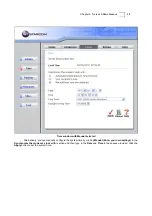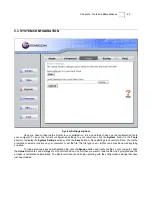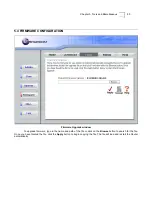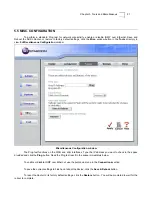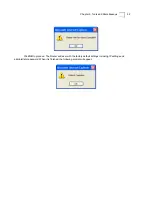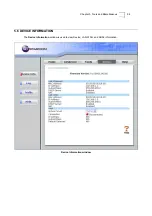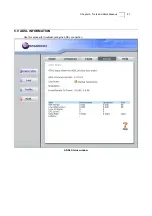
Chapter 6 Troubleshooting
62
6.1.2 WINDOWS 2000
First, check for the IP protocol and, if necessary, install it:
1. In
the
Windows
task bar, click the
Start
button, point to
Settings
, and then click
Control Panel
.
2. Double-click
the
Network
and Dial-up Connections
icon.
3. In
the
Network and Dial-up Connections
window, right-click the
Local Area Connection
icon, and then select
Properties
.
4. The
Local Area Connection Properties
dialog box displays with a list of currently installed network
components. If the list includes Internet Protocol (TCP/IP), then the protocol has already been enabled, skip
ahead to
Configure Windows 2000 for DHCP
.
5. If Internet Protocol (TCP/IP) does not display as an installed component, click
Install
.
6. In
the
Select Network Component Type
dialog box, select
Protocol
, and then click
Add
.
7. Select
Internet Protocol (TCP/IP)
in the Network Protocols list, and then click
OK
.
8. You may be prompted to install files from your Windows 2000 installation CD or other media. Follow the
instructions to install the files.
9. If prompted, click
OK
to restart your computer with the new settings.
6.1.3 CONFIGURE WINDOWS 2000 FOR DHCP
1. In the Control Panel, double-click the
Network and Dial-up Connections
icon.
2. In
Network and Dial-up Connections
window, right-click the
Local Area Connection
icon, and then select
Properties
.
3. In
the
Local Area Connection Properties
dialog box, select
Internet Protocol (TCP/IP)
, and then click
Properties
.
4. In
the
Internet Protocol (TCP/IP) Properties
dialog box, click the button labeled
Obtain an IP address
automatically
.
5. Double-click
OK
to confirm and save your changes, and then close the Control Panel.
Your computer is now ready to use the Router’s DHCP server.

